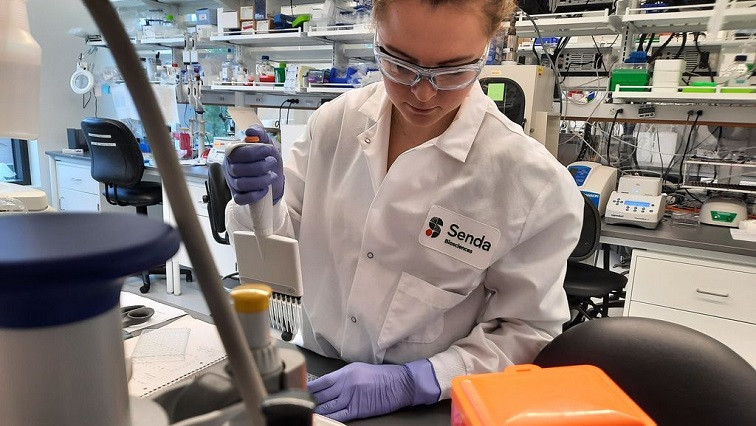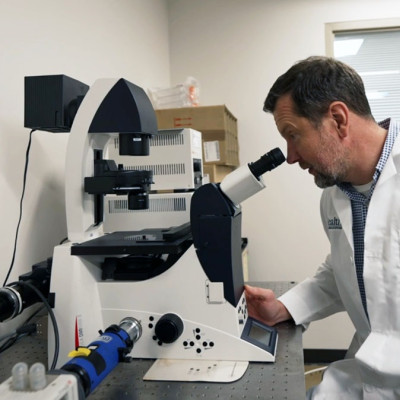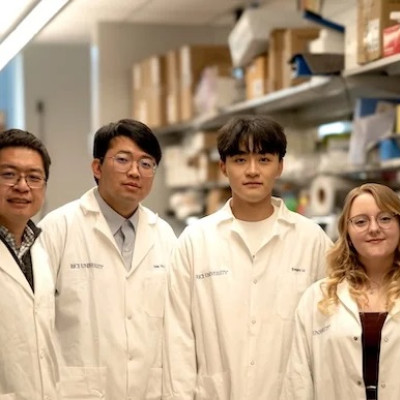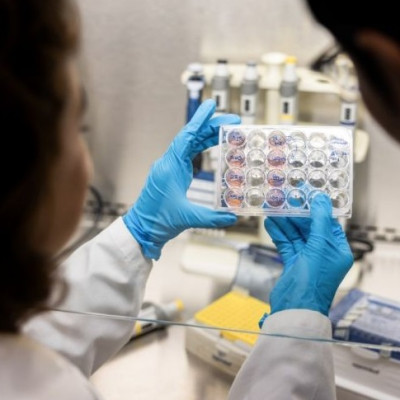Senda Biosciences, a biotech startup with big ambitions for expanding the reach of mRNA therapies and vaccines, announced Tuesday that it had raised $123 million in series C financing.
Flagship Pioneering, the Cambridge investment firm best known for launching the mRNA company Moderna, created Senda in 2020 by merging several Flagship-founded startups, including Kintai Therapeutics and three early-stage companies that had not yet been given formal names.
Since then, Senda has grown to 75 full-time employees, based in Cambridge Discovery Park by the Alewife T stop, and has raised $266 million in total. The startup is using that money to help solve one of the biggest challenges with all genetic therapies, including ones based on mRNA: how to deliver the medicine to the right part of the body.
Before the pandemic, scientists labored for decades trying to design protective shells that could shuttle fragile mRNA molecules into our bodies. The two commercial mRNA vaccines for COVID-19, sold by Moderna and Pfizer, both use globules of fat called lipid nanoparticles to get mRNA molecules into our cells.
Biotech companies have made lipid nanoparticles that efficiently deliver mRNA to liver cells as well. But ferrying mRNA to any other specific organs affected by a disease — such as the brain, lungs, kidney, or small intestine — is one of the biggest hurdles for companies hoping to expand the range of diseases they can treat with the molecule.
Senda’s strategy for mRNA delivery is inspired by nature, said chief executive Guillaume Pfefer. The company’s scientists have studied how organisms such as bacteria, fungi, plants, and microbes called archaea are able to transmit molecular messages — including ones based on genetic molecules — between cells.
The goal was to look for “the pieces of machinery” responsible for this communication, Pfefer said. “And that’s exactly what we ended up finding,” he added. “We are building an atlas of 50,000 molecules that are part of a chemical-addressing language, invented by nature, to create natural nanoparticles.” Senda is not disclosing details about how it discovered this “addressing language” or precisely how it works.
The company is not alone in its endeavors to make new-and-improved delivery vessels for mRNA. Several startups, including Cambridge-based Tiba Biotech and Woburn-based Hopewell Therapeutics, employ chemists developing synthetic nanoparticles. Earlier this year, pharma giant Eli Lilly said that the genetic medicine research center it is building in Boston’s Seaport neighborhood would place heavy emphasis on drug delivery science.
Pfefer believes developing nanoparticles based on molecules found in nature, rather than ones invented in a lab, will lead to therapies that are safe for more frequent dosing — which is important for treating chronic conditions.
Although Senda “spends a lot of time on mRNA,” Pfefer emphasized that Senda is not just an mRNA company. Senda is working on using its nanoparticles to deliver protein and peptide therapies for metabolic diseases and has explored using its nanoparticles for delivering gene editing therapies into the body as well.
The startup is in “several advanced discussions” to potentially partner with other biotech firms, Pfefer added.
Getting a drug ready for clinical testing is taking slightly longer than expected. In October 2020, Senda said that by the end of 2022 it would file applications to begin clinical trials of therapies in six disease areas. A spokesperson for the firm said that Senda paused work on its original programs for kidney disease, Parkinson’s disease, and immunotherapy after a “strategic review” conducted last year.
The company is now focused on autoimmune, genetic, infectious, and metabolic diseases, as well as cancer. Senda expects to pick its first drug candidates in 2023, pushing the startup’s first clinical trials back to 2024.
Read the original article on Boston Globe.







